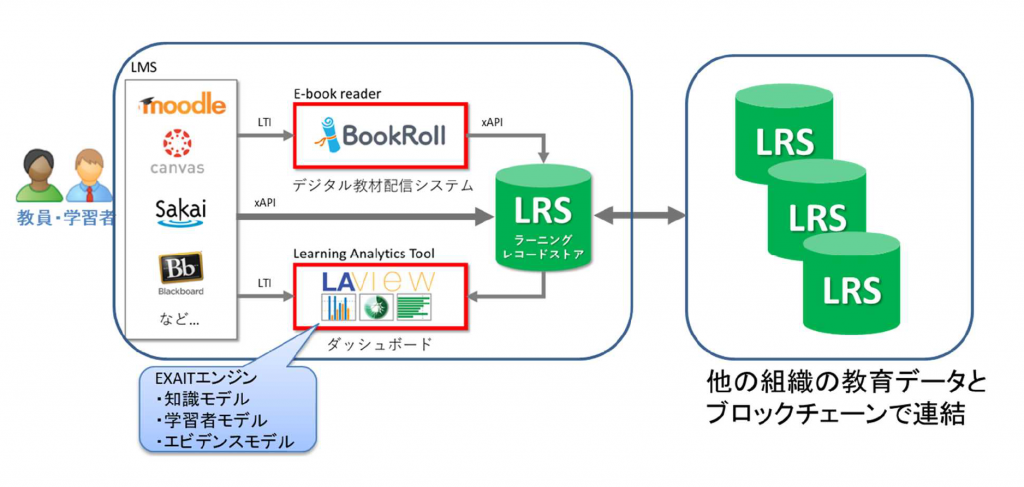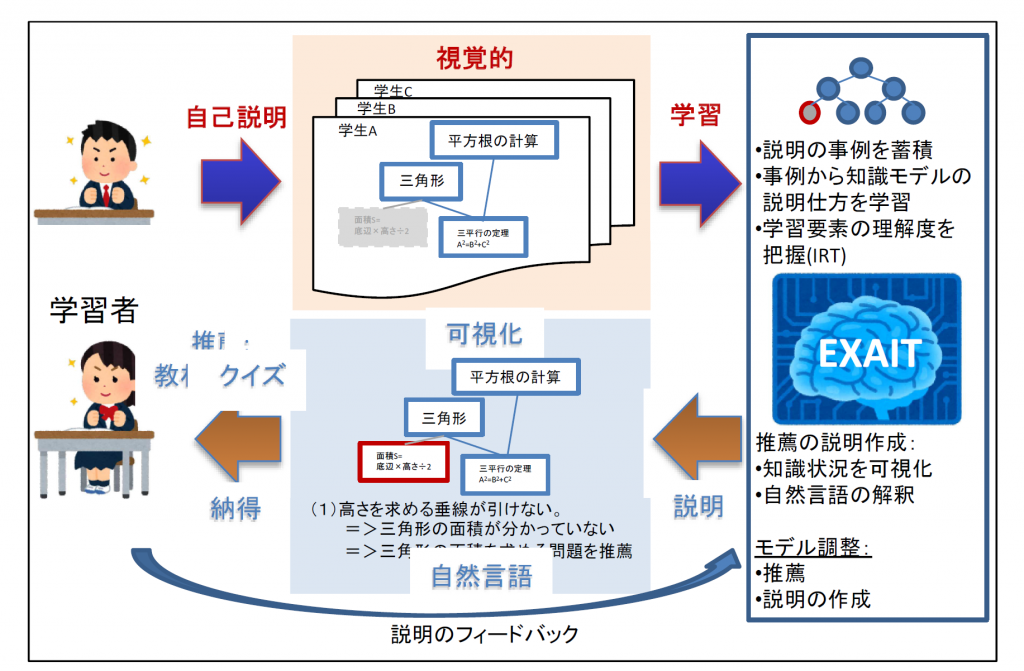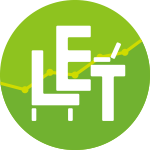[NEDO] Research and Development of the Educational Support Environment EXAIT through the Co-Evolution of Learner Self-Explanation and AI Explanation Generation
This project develops the educational explanation-generation AI engine EXAIT (Educational Explainable AI Tools) in collaboration with Uchida Yoko Co., Ltd. and the Kyoto City Board of Education. It aims to introduce learning analytics into real school environments. In July 2020, it was selected for NEDO’s “Technology Development Project for Next-Generation Artificial Intelligence Co-Evolving with Humans” and full-scale empirical research began in November.
Background
With the Ministry of Education’s GIGA School initiative promoting device deployment in classrooms, the importance of AI in education is increasing. However, if AI analysis results are not convincing to learners, it is difficult to foster learner autonomy. This project focuses on developing “explainable AI” that provides persuasive analytical data, conducting empirical research in collaboration with the Kyoto City Board of Education.
Overview
Building on the LEAF system, which consists of BookRoll and LA View, the project develops and integrates the AI engine EXAIT to generate explanations from learning behaviors.

Empirical research was conducted in schools in Kyoto City. Uchida Yoko handled system construction and data management, and jointly evaluated the system’s effectiveness.
Data-Driven Research and Development of EXAIT
The AI engine EXAIT combines both model-driven and data-driven approaches for explanation generation. The model-driven approach recommends the next learning content based on knowledge structures, while the data-driven approach generates explanations from logs. By integrating these, EXAIT visualizes and supports the learning process.

Research Grant
- NEDO “Technology Development Project for Next-Generation Artificial Intelligence Co-Evolving with Humans”
- “Development of Fundamental Technologies for Explainable AI / Research and Development of EXAIT”
- Research Period: July 2020 – February 2022

